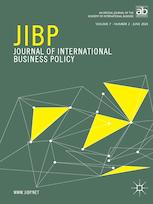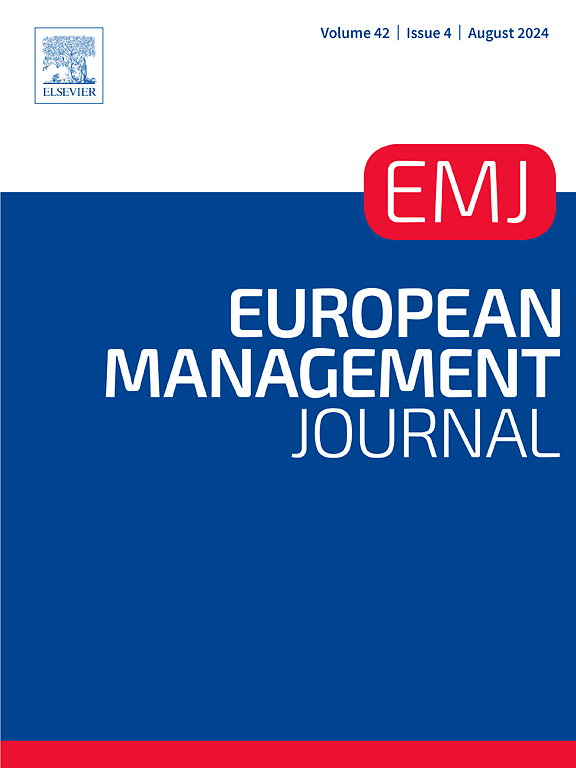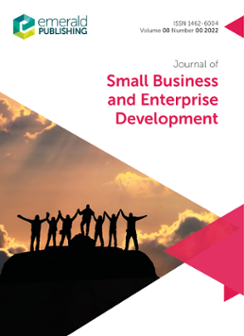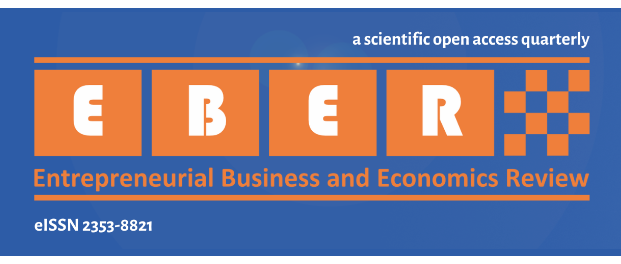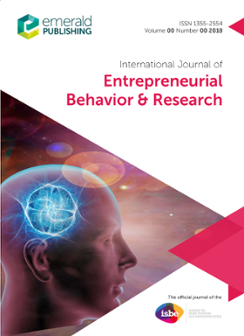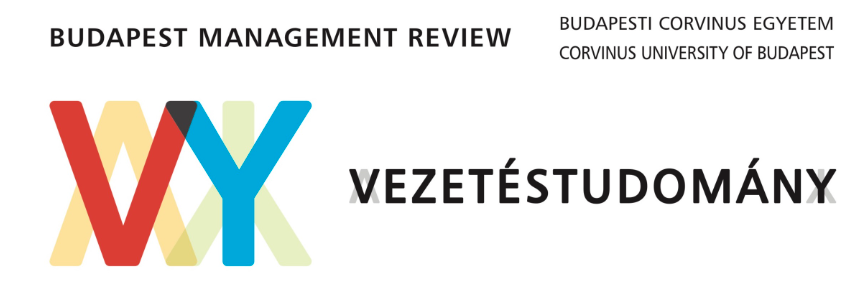AIB-CEE Chapter Conference 10th Anniversary
18–21 September 2024

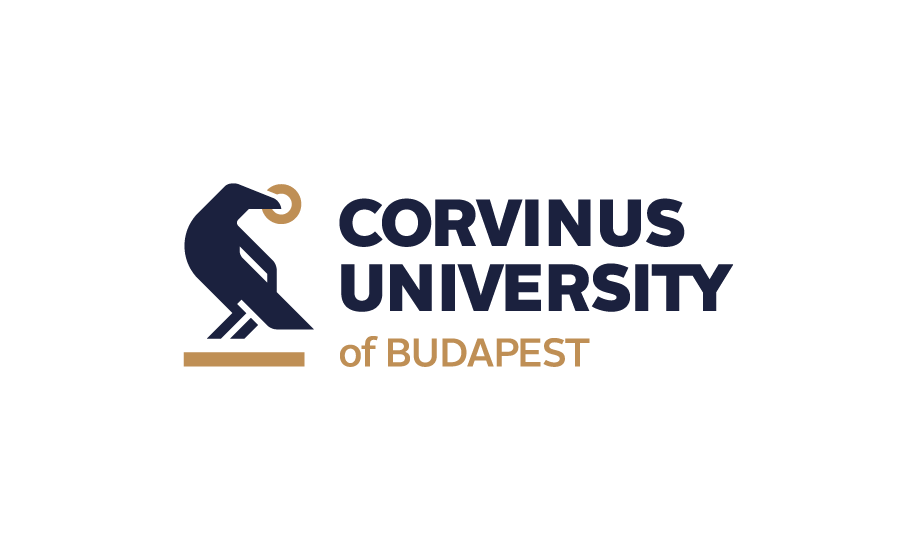
Academy of International Business – Central and Eastern Europe Chapter and Corvinus University of Budapest invite you to the
10th Anniversary of Academy of International Business Central Eastern European (AIB-CEE) Chapter Annual Conference on „Navigating New Realms: Business Collaboration, Digitalization, and Innovation Redefining Success in Uncertain Times”,
which will take place on September 18-21, 2024 at Corvinus University of Budapest, Gellért Campus
Keynote speakers

Jean Francois Hennart (Ph.D Economics, University of Maryland) is Emeritus Professor of International Management at Tilburg University. His previous full-time appointments were at the University of Illinois Urbana-Champaign, Wharton, and Florida International University. He holds and has held visiting positions at Politecnico di Milano, Aalborg University, Wirtschaftsuniversität Wien, Kobe University, Osaka City University, Copenhagen Business School, Singapore Management University, Queens University Belfast, the University of Pavia, University College Dublin, and BI Norwegian Business School.
His research focuses on the comparative study of international economic institutions such as multinational firms (MNEs) and their contractual alternatives, on modes of foreign market entry, and on equity joint ventures. His Theory of Multinational Enterprise (University of Michigan Press, 1982) pioneered the application of transaction cost theory to international business. He is presently working on MNEs from emerging countries, Born Globals, the internationalization of family firms, and the measurement of MNE activity. His articles in top journals have garnered more than 18,000 citations.
He is a Fellow of the Academy of International Business and of the European International Business Academy for which he co-chairs the annual doctoral tutorial. He is consulting editor at the Journal of International Business Studies (JIBS) and serves on the editorial boards of most major IB journals. He holds an honorary doctorate from the University of Vaasa, was elected in 2010 Booz&Co/Strategy+Business Eminent Scholar in International Management. In 2019 he received a Gold Medal for his publications in JIBS.

Roger Strange is Professor of International Business at the University of Sussex Business School, United Kingdom. His current research focuses on four main areas of International Business: the reasons for, and the implications of, the growing trend towards the externalization of production in global value chains; the effects of corporate governance factors on foreign direct investment decisions; the determinants of MNE subsidiary location; and the impact of new digital technologies on international business theory and practice.
He is the author/editor of fourteen books, and over one hundred journal articles and book chapters. Roger is the co-Editor-in-Chief of International Business Review, a former President of the European International Business Academy (EIBA), and an EIBA Fellow. He is a member of the Editorial Review Boards of the Journal of International Business Studies, Journal of International Business Policy, Journal of World Business, Global Strategy Journal, Asia Pacific Business Review, and the Journal of Management & Governance.
He has been a consultant to UNCTAD on several World Investment Reports and to the World Bank on Global Investment Competitiveness Report 2021-2022.
Organisers and sponsors
AIB
The Academy of International Business (AIB) is the leading global community of scholars for the creation and dissemination of knowledge about international business and policy issues. AIB began with a meeting of 15 like-minded scholars looking to build a strong foundation for the field of International Business. Sixty years on, we’ve grown into a global community of over 3,000 academics, producing some of today’s most impactful research.
Corvinus University of Budapest
Corvinus University of Budapest is Hungary’s leading university in the field of economic and social sciences. Corvinus University of Budapest has over a 100-year-old history and is one of the leading universities in Hungary in Business and Management, Economics and Social Sciences. CUB has around 10,600 students, of which approximately 2,000 are international representing over 100 countries. The campus of CUB is located in a stunning UNESCO Heritage building overlooking the Danube River, in the heart of Budapest. The second state-of-the-art campus opens in 2024. Budapest was listed in the top-tier category of the Economist 2023 Global Liveability Index. The city comes together with major cities in Western Europe and North America, and it is the highest-ranked city in Eastern Europe.
Corvinus University has been granted accreditation by EFMD and EAPAA and is the only Hungarian business university to have two international institutional accreditations by AACSB and AMBA. In addition, CUB is a member of several international networks such as CEMS, BSIS, PRME, and CFA. We are also proud to have won the title of the most sustainably developing university in UI GreenMetric’s world ranking in 2022.
The university has 4 doctoral schools: Doctoral School of Business and Management, Doctoral School of Economics, Business and Informatics, Doctoral School of International Relations and Political Science, and Doctoral School of Sociology and Communication Science.
Sponsors
Call for papers for Special issues
Participating journals at the Conference (including the 'Meet the editor' session)
Conference tracks will provide the opportunity to broadly discuss ideas included in the abstracts. Abstracts accepted and presented at the conference can be developed to papers and be published in the following journals (subject to their acceptance).
Committees
Chairs of the conference

Dr. habil. Miklós Stocker
Conference Chairman

Dr. Miklós Kozma
Conference Chairman
Local Conference Committee members

Adrian Josef Amon
Corvinus University of Budapest

Tímea Benedek
Corvinus University of Budapest

Viktória Endrődi-Kovács
Corvinus University of Budapest

Bence László Pistrui
Corvinus University of Budapest

Miklós Kozma
Corvinus University of Budapest

Miklós Stocker
Corvinus University of Budapest
Registration and fees
| Early-bird registration (until 15th July) | Regular registration (until 29th July) | Late registration (after 29th July, until 1st September) | |
|---|---|---|---|
| Lecturer / Professor / Others | |||
| Already AIB member* | 350 EUR | 400 EUR | 500 EUR |
| Non-AIB members | 350 EUR + 120 USD AIB membership fee | 400 EUR + 120 USD AIB membership fee | 500 EUR + 120 USD AIB membership fee |
| Ph.D student | |||
| Already AIB member* | 200 EUR | ||
| Non-AIB members | 200 EUR + 40 USD AIB membership fee |
* You must be a member of AIB on the day of the conference by having paid the membership fee. If you are a non-AIB member, the membership fee must be paid accordingly: Lecturer/Professor/Others + 120 USD, Ph.D student + 40 USD.
Invoice information
Please be aware that there is no possibility for credit card payments.
Please, if you need a Pro Forma invoice, send us your billing information by sending it to aibcee2024@uni-corvinus.hu.
When you register for the conference, please clarify to us to whom the Pro Forma invoice should be issued. The final invoice will be issued later based on the information you gave during registration.
Please note that all participants of the 10th AIB-CEE Chapter Annual Conference must be valid members of AIB, which means the membership fee must be paid (the status can be checked in the online system of AIB). For your convenience, if you are not an AIB member, please join by clicking ‘join AIB now’ first on the registration page.
The registration is completed if you pay the conference fee and have an AIB membership.
Conference program overview
Late morning: AIB-CEE Chapter Board Meeting
Afternoon: Research Philosophy workshop
Late afternoon: Opening Keynote
Evening: Welcome Ceremony
Morning: Plenary session and panel discussions
Lunch
Afternoon: Networking session and plenary session
Morning and afternoon: Parallel sections
Evening: Gala dinner
Morning: Meet the editor and meet the researcher sessions
Parallel whole day workshops: Qualitative Research, Quantitative Research, Systematic literature review.
Extended abstract submission
Extended abstract submission deadline: 30th April 2024 17th June 2024
Decision: 10th June 2024 (for those who submitted the extended abstract until 17th April)
Decision for late submissions: 1st July 2024.
Extended abstract submission page for Conference
Please note that submitting an abstract is not counted as a registration for the conference. This process has to be initiated by acquiring the AIB membership and by using the link above.
Tracks of the Conference
Track Chairs: Jurgita Sekliuckienė, Kaunas University of Technology & Krzysztof Wach, Krakow University of Economics
This track seeks contributions that explore the internationalization process as an entrepreneurial process for discovering and exploiting international business opportunities across borders. Such opportunities emerge because of cross-border differences in resource and institutional endowments, capabilities, and technologies, and they require strategies that may lead to growth and scale. Moreover, the entrepreneurial internationalization of SMEs and their business models, supported by digital and technology solutions, causes the transformation of the international business landscape, its operations, organization, knowledge sourcing, and creation across international networks and locations. Thus, performance-oriented digital actions and implications for entrepreneurial SMEs would be of special interest. We welcome both theoretical, conceptual, and empirical contributions based on qualitative, quantitative, and mixed methods.
Keywords: international entrepreneurship, internationalization of SMEs, entrepreneurial networks, opportunity discovery, opportunity exploitation, entrepreneurial cognition and orientation, scale-up, international venturing, entrepreneurial alertness; SME exporters/importers, international new ventures (INVs), born globals (BGs), international startups, born-digital firms (BDs), virtual teams, clusters, cooperation, networks.
Track Chairs: Andreja Jaklič, University of Ljubljana & Chengguang Li, Technical University of Munich
Since the 1990s, global value chains (GVC) have become a central feature of Central and Eastern Europe (CEE) and, as a result, have attracted the growing interests of scholars and practitioners alike. While GVC activities in CEE have helped local businesses and firms around the world improve their productivity and flexibility, regional disruptions due to economic, ecological, geopolitical, and technological developments have created challenges and opportunities in the process.
In light of regional disruptions in GVC in CEE, this track welcomes papers that address issues around GVCs and explore the challenges and opportunities they present. In particular, we welcome submissions on the strategies of CEE firms that help them navigate regional disruptions in GVCs, reshoring and re-configuration of GVCs of CEE firms and non-CEE firms that operate in CEE, novel cooperation models that aim at increasing the resiliency of GVCs of firms, the role of digital technologies in GVC activities in CEE, the influence of growing pressures and requirements on sustainable GVCs on firms from CEE, and firms’ experience with the design and implementation of GVC-oriented policies in the region.
Keywords: Global Value Chains (GVCs), Regional Disruptions, Reshoring, Reconfiguration of GVCs, Digital Technologies in GVC Activities, Sustainable GVCs.
Track chairs: Erzsébet Czakó, Budapest Business University & Wioletta Mierzejewska, SGH Warsaw School of Economics
Conceptual and empirical papers devoted to the current state and changes in the international competitive position of the CEE region, its national economies, selected industries, and firms are expected for this track. Contributions on the theoretical foundations of competitiveness, particularly the interrelatedness of national-, industry-, and firm-level concepts, are most welcome.
Since the 1st AIB-CEE Chapter Conference, global value chains, digitalization, de-globalization, and permanent crises have unfolded and provided new lenses and a new landscape for competitiveness investigations. Just a few, for which the track provides a platform for discussions: given the digitalization-based industrial revolution, what its competitiveness implications are on sources of competitive advantage and positions of firms in the CEE countries; academic and professional insights into the competitiveness consequences of the backlash of globalization; and the essence, impacts, and potential of so-called unconventional economic policies to boost the competitiveness at the national level in some CEE countries. However, other contributions that are broadly related to the aforementioned ones are also welcome.
Keywords: competitiveness, national competitiveness, industry and ecosystem competitiveness, firm competitiveness, industrial policy, backlash of globalization, regional cooperation
Track chairs: Tiia Vissak, University of Tartu & Magdolna Sass, HUN-REN KRTK & Budapest Business University
This track focuses on internationalization, including exports, foreign investments, and other foreign entry and/or foreign operation modes. Qualitative, quantitative, and conceptual papers on the internationalization processes of different firms, including, e.g., small and large multinationals, slow internationalizers, born-again globals, and born globals, are welcome on this track. Papers could focus on factors leading to or affecting these firms’ initial internationalization and further growth, but also de- and re-internationalization (complete and/or partial exits and re-entries), including foreign operation mode changes. Papers focused on differences between various internationalizers—for instance, slow internationalizers and born-again globals or service firms versus manufacturing firms—and those on the positive and/or negative consequences of internationalization for different firms are also suitable for this track. Papers can focus on firms from different regions: on CEE firms active in (or still entering) CEE and other regions, other firms active in CEE, but also other firms active in other regions.
Keywords: international business, internationalization process, de- and re-internationalization, born globals, MNEs
Track Chairs: Witold Nowiński, WSB Merito University in Poznań & Miklós Kozma, Corvinus University of Budapest
Since the advent of the Internet age, digitalization has accompanied international business. The development and application of ICT technologies have enabled firms to identify new international opportunities and use new electronic sales channels across borders. Social media extended the reach to customers and competitors, facilitating not only communication but also international sales. Digital platforms have opened access to international markets that were otherwise inaccessible. On top of that, digital technologies can facilitate financial transfers and minimize risks in global supply chains, opening opportunities for new business models to emerge. However, digitalization creates not only opportunities but also new challenges. New digital competencies have become an indispensable resource for internationalizing firms. At the same time, digital assets, while offering specific opportunities, are not without limitations, and cross-national distance still hinders internationalization, even of digital products. Thus, the competitiveness of digital firms is put to the test in a developing global environment, and there is emerging scope for research on the interplay between digitalization and international success.
Keywords: international business; internationalization of firms; internationalization of SMEs (small and medium-sized enterprises); international new ventures (INVs), born globals (BGs), born digitals (BDs), international strategies, international competitiveness, digital business models, digital enterprises, clusters, innovation, business model innovation, digital transformation. ICT, Artificial Intelligence
Track Chairs: Łukasz Puślecki, Poznań University of Economics and Business & Nikolett Deutsch, Corvinus University of Budapest
Companies operating in a competitive global environment, where the risk and complexity of product development are increasing and the need for even more innovative services and products is growing, are seeking to expand collaboration through partnerships, especially in recent decades. As a result, we can observe the development of advanced and complex alliances between companies. The need to collaborate on innovative projects has led companies to use modern partnership models, including those based on the principles of open innovation, N-helices, or innovation ecosystems. Research on open innovation shows how organizations manage both the inflow and outflow of knowledge, how they seek and select partners, and the innovations they offer. The propensity for open innovation and, more generally, the development of innovation collaborations are far less documented in CEE than in Western markets. The embedding of the innovation process into a multi-layered and multi-actor innovation system is rooted in the recognition that the patterns and characteristics of the innovation process are shaped by global, national, regional, industrial, and technology-specific factors and institutions, i.e., the process of innovation has a territorial dimension, while the reciprocal relationships and network relations between academia, government, business, and society are the keys to knowledge-based industrial development. Traditionally, cooperation in innovation in CEE economies is restricted by low trust and limited collaboration among triple-helix entities. As innovation ecosystems are assumed to play a critical role in the implementation of EU innovation policies, investigating and developing measures, approaches, and initiations aiming to increase the national, regional, and firm-level performance of co-creation of value through collaboration among interconnected and interdependent networked actors representing knowledge production, wealth creation, and norm control is of utmost importance.
It is worthwhile (both from an academic and business perspective) to explore this area of research, especially in turbulent times, and to monitor the shift from an efficiency-driven economic model to a knowledge-based economy (CEE) that leverages the local and domestic innovation potential of all partners involved in innovation collaboration. The changes mentioned above received new dynamics in the context of the rising wave of skepticism towards international business and recurring crises, whereby a smaller number of firms and MNE location and control configurations emerge and domestic firms become more dominant. The COVID-19 pandemic has acted as a catalyst for the already ongoing processes, while the war in Ukraine further aggravated the mentioned challenges.
Keywords: innovation, open innovation, R&D&I alliances, R&D&I cooperation, innovation ecosystems, innovation performance, business-academia cooperation
Track Chairs: Piotr Trąpczyński, Poznań University of Economics and Business & Miklós Stocker, Corvinus University of Budapest
International strategy has been the focus of scholars for many decades. In our uncertain global environment, international strategy becomes more challenging and important as organizations face various risks and opportunities arising from political, economic, social, environmental, and technological changes. We are looking for papers that focus on how the degree of uncertainty and complexity in the external environment affects the ability of organizations to predict and respond to changes, as well as the financial (and/or social) costs and benefits of different strategic options. As well as the availability and accessibility of resources and capabilities across different locations, which influences the decisions of organizations to allocate and leverage their assets and competencies in the most efficient and effective way. We also look for papers that focus on the alignment or change of the
organization’s vision, mission, and values due to the uncertainty in the environment and how it affects or is affected by its stakeholders. As well as how companies scan and monitor the external environment, using various sources and methods of data collection and analysis, to identify and evaluate the trends, drivers, and scenarios that affect their strategic choices and outcomes in the international context. The track is also open for research dealing with the resilience of the international operations of companies under conditions of environmental turbulence and uncertainty, such as the context of the COVID-19 pandemic or the war in Ukraine. In this context, the role of digitalization in building resilience could be one of the areas of interest.
Keywords: International Strategy; Impact of external environment; Changes in vision, mission or value statement; Data analysis about external environment; Resilience
Track Chairs: Agnieszka Głodowska, Krakow University of Economics & Attila Kajos, Corvinus University of Budapest
Customers’ behavior and the specific nature of international markets are still key challenges for international business. The global economic and geopolitical situation, as well as dynamic technological changes, have recently significantly reoriented the perspective of international firms towards these challenges. The pace of digitalization requires marketers to constantly adapt to new marketing tools and platforms. Social media, artificial intelligence, and growing competition in e-commerce create enormous opportunities for firms but, at the same time, exert significant pressure. The marketing reality is becoming more and more complex and demanding. Artificial intelligence and machine learning can be invaluable sources of detailed customer information, constituting the foundation for strategic marketing decisions. AI marketing can become a powerful tool used for segmentation and personalized approaches to customers. Digital communication with customers can be more effective through the use of chatbots, automation of e-mailing, and social media. The use of the above solutions offers great opportunities for internationalized firms but is also not without disadvantages and threats. Recognizing them and using them effectively requires continuous education, updating knowledge, and increasing creativity from marketers to stand out from the crowd and attract the attention of international customers. International customers expect increasingly personalized and customer-focused products and services. They care about the natural environment, becoming more socially aware of sustainable development and responsibility. The above trends are a great challenge for international marketing and arouse a lot of emotions. They require innovation, flexibility, and the ability to quickly adapt to changing market conditions.
In our track, we call for papers that address the above trends and challenges, reflect new digitalization-oriented marketing strategies, and meet sustainable goals. Papers on more traditional international marketing topics are also welcome (strategies for entering foreign markets, marketing mix, adaptation and standardization strategies, branding, etc.). We encourage you to submit both conceptual and empirical studies with any research methodology or research approach.
Keywords: digital marketing, AI marketing, social media, customer behavior, sustainability.
Track Chairs: Előd Takáts, Bank for International Settlements & Inna Romānova University of Latvia
Central and Eastern Europe (CEE) faces a set of distinctive challenges in the realm of international finance. Despite significant economic growth in recent years, the region grapples with ongoing issues such as geopolitical conflict, political and economic volatility, and diverse regulatory environments. Integration into the broader European financial framework brings both opportunities and challenges as CEE nations navigate the complexities of harmonizing financial systems and addressing disparities in income and infrastructure. Currency risk and exchange rate fluctuations pose particular challenges for
businesses operating across borders in the region. Additionally, geopolitical tensions, historical legacies, and the need for sustained structural reforms contribute to a complex landscape, requiring nuanced strategies for foreign investors and financial institutions seeking to capitalize on the region’s potential while managing associated risks.
Keywords: cross-border bank lending, non-bank financial institutions, clearing houses, systemically important banks, systemically important financial institutions, digital finance, sustainable finance, international taxation.
Track Chairs: József Poór, J. Selye University & Gábor Balogh, University of Pécs
Over the past three years, several significant changes have affected the HRM and IHRM systems of companies and institutions both in the world and in the CEE region. In a way not typical of previous crises, the unprecedented closures required initiated a wave of measures not seen before. The COVID-19 crisis severely affected the export-oriented economy of the CEE region and ended the period of continuous growth of the previous years. At the same time, the process of recovery from the COVID-19 crisis and the initial recovery are overshadowed by various regional conflicts (Russia’s war in Ukraine, the Arab-Israeli war, etc.). However, in addition to the previous written challenges, long-term influencers such as climate change, artificial intelligence, and issues of diversity and acceptance of others should not be neglected. In this situation, domestic and multinational companies have to design and operate their HRM/IHRM practices much more flexibly than before, as well as have technically well-founded management.
Keywords: HRM/IHRM systems and functions, labor and talent shortages, migration, expats, AI, external service providers
Track Chairs: Ágnes Szunomár, Corvinus University of Budapest & Balázs Vaszkun, Corvinus University of Budapes
The role of emerging market multinational enterprises (EMNEs) as global investors has grown rapidly in recent decades. Although the majority of these companies target their neighboring regions, mainly developing countries, their presence in the more developed regions, including Europe, has become more visible in the past two decades. As a result, EMNE’s economic impact on Europe has accelerated significantly, especially after the global economic and financial crisis of 2008 and recently also due to the increasingly intense presence of innovative EMNEs in sectors such as information technology, telecommunications, and electric vehicles. This presence creates both opportunities and challenges for Europe. Cooperation can create positive spill-over effects, and in areas such as battery production, Korean and Chinese players are practically indispensable. At the same time, the presence of these companies creates strong competition for their European companies, while their activities here often raise economic, political, security, and environmental concerns. Moreover, EMNEs’ management practices, including HRM practices, can differ somewhat from those of advanced MNEs, which creates tensions in host countries, especially in cases of mergers and acquisitions. On the other hand, liability of foreignness (or liability of origin) is an additional challenge EMNEs have to face when investing in Europe.
Keywords: EMNEs (Emerging Market Multinational Enterprises), Economic Impact of EMNEs, Competition in Innovative Sectors, Management Practices of EMNEs, Liability of Foreignness, Spill-Over Effects
Track Chairs: Henriett Primecz, Johannes Kepler University Linz & Anna Hidegh, Corvinus University of Budapest
The track invites submissions of empirical, conceptual, and review papers aimed at advancing our understanding of diversity, equity, and inclusion (DEI) within various domains (i.e., strategy, leadership, HRM, marketing, entrepreneurship, innovation, and policy). We encourage contributions that delve into DEI dynamics at the supranational, national, industry, organizational, team, community, and individual levels.
We welcome papers that address the specific social context of the CEE region and reflect upon the organizational practice and academic theorization related to gender, disability, neurodiversity, age, ethnicity, religion, and the situation of refugees, displaced persons, and sexual minorities. For instance, there is a notable historical trajectory concerning women in management roles within the CEE region, warranting investigation into how their status has changed taking into consideration the post-socialist legacy and retraditionalization trends of recent decades. Furthermore, both management studies and multinational corporations lack attention towards including Roma people. Furthermore, the contributions of individuals with immigration backgrounds, expatriates, and, in general, foreign nationals in Shared Service Centers within the region represent an underexplored dimension within the DEI discourse. In general, research that investigates the intricacies of inclusion and the DEI practices in the subsidiaries and DEI initiatives of regional headquarters of multinationals is much needed in this region. Beyond that, we encourage submissions that illuminate the interplay between intersectionality and social inequalities contextualized within the specificities of the CEE region. By problematizing and scrutinizing DEI dynamics, we aim to foster a deeper understanding of the complexities inherent in inclusion initiatives and practices.
Keywords: gender, disability and neurodiversity, age, ethnicity, religion, refugees, displaced persons, sexual minorities, intersectionality, inequalities, DEI initiatives of HQs.
Track Chairs: Mike Troilo, University of Tulsa & Michał Zdziarski, University of Warsaw
This track is for research and conceptual work relating to all aspects of corporate governance (CG). In times of New European Bauhaus and increased efforts towards a more sustainable future for Europe, we are particularly interested in studies that take into account how these policy ideas translate into governance practices at institutional, corporate, and micro levels in Central and Eastern Europe. Potential themes include: sustainability measurement and reporting; diffusion of policy into governance practices; corporate governance codes; board ownership; minority shareholder rights; stakeholder management; related and supporting institutions for CG; comparative studies of CG across nations; and interlocking directorates. Of particular interest is CG research that connects to performance outcomes, be they financial, operating, strategic, environmental, or human resources metrics. Although most CG research features for-profit, private-sector firms, we welcome studies of the impact of CG on other kinds of organizations, such as non-profit organizations (NPOs), non-governmental organizations (NGOs), and state-owned enterprises (SOEs), as well as more complex network organizations and value chains.
Keywords: Corporate Governance, Sustainability, Performance, Organizations, ESG
Track Chair: Matevž Rašković, Auckland University of Technology
Less than a decade ago, many international business, strategy, and policy scholars expected a diminished role for nation states, with calls to abandon methodological nationalism, explore alternative “containers” of cultures, and diversify focus to different kinds of markets for international business activities, like regions, sub-national-level markets, and global cities. The rise of slowbalization after the global financial
crisis, geopolitical tensions, and the relevance of geoeconomics, however, have contributed to the exact opposite. States matter more than they have in the last half century, which in turn has implications for firms, society, and a range of other stakeholders. Within a more fractured and polarized world with protectionist trade policies, rising nationalism and populism, as well as politics of identity, we need to critically assess and perhaps re-think the role of nation states in the 21st century when it comes to foreign trade and investment, global governance and the role of supranational institutions, geopolitics, and military conflict, as well as addressing the myriad wicked problems and grand challenges, like climate change.
Keywords: Nations and nation states, methodological nationalism, supranational and subnational entities, supranational institutions, global governance, international cooperation, MNE-government interactions, states and economic nationalism, regional integration and trade agreements, states and the liberalization of foreign trade and investment, political risk and populism, states and politics of identity, international business policymaking, the role of nation states in addressing climate change, and other wicked problems.
Track chairs: Zsolt Havran, Corvinus University of Budapest & Karolina Nessel Jagellonian University in Kraków
Sport has evolved into a global phenomenon, transcending borders, cultures, and industries and becoming an integral part of the international business landscape. Amidst contemporary global trends such as digital transformation, globalization, and shifting consumer behaviors, stakeholders in the sports industry encounter unprecedented opportunities and challenges. This holds true for sport grassroots entities, professional sports clubs, national and international sports governing bodies, multinational sports equipment suppliers, national authorities, as well as other business organizations seeking to benefit from the global appeal of sports for their strategic purposes.
In this track, we invite researchers to explore trends, challenges, opportunities, and multifaceted dimensions of internationalization within the sports industry, as well as the role of sports as a vehicle for fostering international connections within the broader context of business globalization. We invite conceptual and empirical research, including international comparative studies. Participation is open to international business scholars, but also researchers from sports management, sports economics, sports studies, or leisure studies if their work offers implications for international management.
Keywords: global sport companies, internationalization through sport, global sporting events, regional comparison
Track Chairs: Mirosław Jarosiński, SGH Warsaw School of Economics & Blaženka Knežević, University of Zagreb
Teaching international business has always been challenging. The more challenging it has become now, in the era of various global disruptions, the more we can expect more and more disruptions in the future. As a result, the past management recipes taught in management schools so far have become obsolete. There is a strong need to educate a new wave of managers prepared to deal with the unknown. Thus, in this track, we are welcoming manuscripts proposing innovative methods of teaching and learning how to navigate through turbulent times in fast-changing environments, including, but not limited to, the application of new digital technologies with artificial intelligence at the forefront and/or promoting best teaching practices. This track addresses teaching international business at the undergraduate, graduate, and executive levels.
Keywords: Experiential learning; Blended learning; E-learning; Transfer of knowledge; Development of an IB curriculum; Internationalizing the curriculum; Cross-cultural classrooms; Critical perspectives; Case teaching; Executive education; Role of international experience; New digital technologies in an IB teaching; Multimedia in IB teaching; Networks in education; National and international accreditations; Future of an IB education.
Track Chairs: Noémi Sinkovics, University of Glasgow & Michał Lemański, Vienna University of Economics and Business
This conference track aims to provide a platform for scholarly inquiry and practical insights into integrating grand social and environmental challenges into business school curricula. As we navigate the “Decade of Action” towards achieving the United Nations’ Sustainable Development Goals (SDGs) by 2030, educators are invited to critically examine existing educational solutions and share experiences of implementing sustainability initiatives in their teaching practices. We invite submissions of papers, case studies, and panel proposals that showcase innovative approaches, tools, and frameworks for promoting responsible business education. Through collaborative dialogue and knowledge exchange, we seek to inspire educators to transform the teaching of international business towards fostering ethical and sustainable business practices in the global marketplace.
Keywords: Common good approach to management education, sustainability education, corporate responsibility, multicultural classroom, principles of responsible management
Accomodation recommendations
Just a 5-10 minute walk from the main university building (or 1 tram/metro stop) and a few stops from the Gellért campus by tram or metro. Serving guests with the usual Mercure quality, with a fantastic breakfast, in a very good transport hub.
just 10 and 15 minutes by tram from both the main university building and the Gellért campus. It offers a special Hungarian breakfast and a quiet environment.
Past and future events of AIB
Previous Chapter Annual Conferences
2022 Zagreb, Croatia 7th AIB-CEE Chapter Annual Conference
2019 Kaunas, Lithuania 6th AIB-CEE Chapter Annual Conference
2018 Kraków, Poland 5th AIB-CEE Chapter Annual Conference
2017 Ljubljana, Slovenia 4th AIB-CEE Chapter Annual Conference
2016 Prague, Czech Republic 3rd AIB-CEE Chapter Annual Conference
2015 Warsaw, Poland 2nd AIB-CEE Chapter Annual Conference
2014 Budapest, Hungary 1st AIB-CEE Chapter Annual Conference
Chapter Seminars
2015 Ljubljana, Slovenia 2nd AIB-CEE Chapter Seminar
2014 Poznan, Poland 1st AIB-CEE Chapter Seminar
For future events, please visit the website of AIB.
